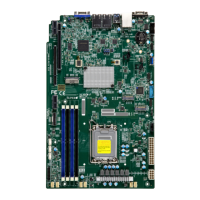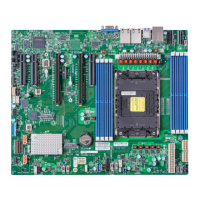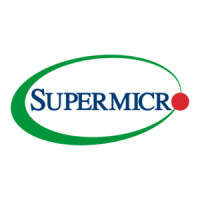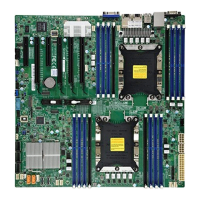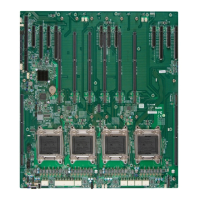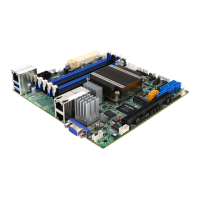Chapter 3: Troubleshooting
77
3.3 Frequently Asked Questions
Question: What type of memory does my motherboard support?
Answer: For Intel Xeon W-3400 series processors (112L), this motherboard supports up to
1TB of ECC RDIMM and 4TB of 3DS RDIMM with speeds of up to 4800 MT/s (1DPC) and
4400 MT/s (2DPC) in 16 ECC DDR5 (288-pin) SMD DIMM slots. For Intel Xeon W-2400
series processors (64L), it supports up to 512GB of ECC RDIMM and 2TB of 3DS RDIMM
with speeds of up to 4800MT/s (1DPC) and 4400MT/s (2DPC) in eight DDR5 (288-pin) SMD
DIMM slots. To enhance memory performance, do not mix memory modules of dierent
speeds and sizes. Please follow all memory installation instructions given on Section 2.4.
Question: How do I update my BIOS?
Answer: It is recommended that you do not upgrade your BIOS if you are not experiencing
any problems with your system. Updated BIOS les are located on our website at https://
www.supermicro.com/ResourceApps/BIOS_IPMI_Intel.html. Please check our BIOS warning
message and the information on how to update your BIOS on our website. Select your
motherboard model and download the BIOS le to your computer. Also, check the current
BIOS revision to make sure that it is newer than your BIOS before downloading.
Note: The SPI BIOS chip used on this motherboard cannot be removed. Send your
motherboard back to our RMA Department at Supermicro for repair. For BIOS Recov-
ery instructions, please refer to the AMI BIOS Recovery Instructions posted at https://
www.supermicro.com/support/manuals/.
To update your BIOS under UEFI Shell
Note: We do not recommend that you update your BIOS if you are not experiencing a
BIOS-related problem. If you need to update your BIOS, please follow the steps below
to properly update your BIOS under UEFI Shell.
1. Download and save the BIOS update package to your computer.
2. Extract the BIOS package to a USB ash drive.
Note: The USB ash drive doesn't have to be bootable; however, it has to be format-
ted to FAT16/FAT32 le system.
3. Insert the USB ash drive into a USB port, boot to the Build-In UEFI Shell, and enter the
following commands to start the BIOS update:
Shell> fs0: (where 0 is the drive number of the USB ash drive)
fs0:\> cd UEFI (where UEFI is folder of the BIOS package)
fs0:\UEFI> ash.nsh BIOSname#.###
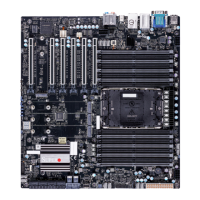
